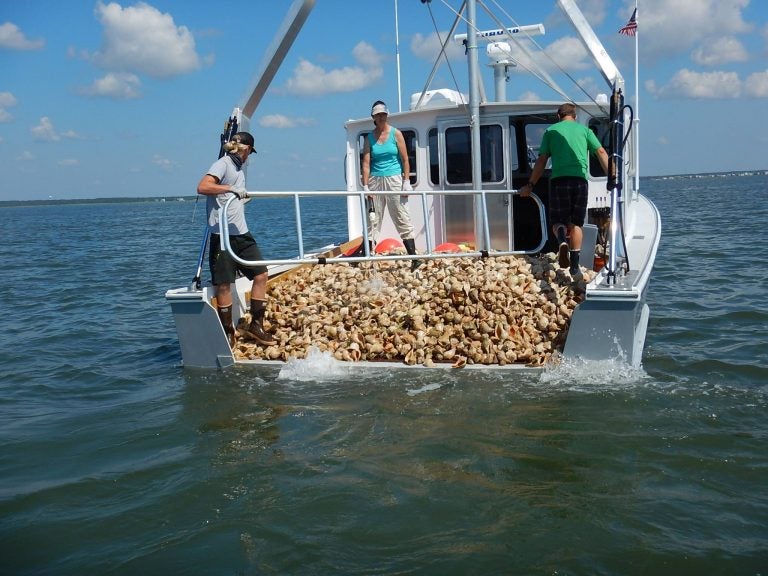Stockton begins creating experimental oyster reef

Whelk shells deposited at an oyster reef site in the Little Egg Harbor Bay earlier this week. (Photo: Stockton University Marine Field Station)
The creation of an experimental oyster reef is underway in the Little Egg Harbor Bay.
Stockton University’s Marine Field Station hopes that the reef will restore the oyster population in the waterway.
According to a university release, the state’s oyster population has plummeted over the years due to pollution, disease, and over-harvest.
The project’s goal is to analyze how both wild oysters and an aquaculture-spawned, disease-resistant strain can help with oyster colony restoration.
Oysters are filter-feeding invertebrates that colonize reefs. Larvae float in the water column until they adhere to a hard substrate, or surface, often other oyster shells, when they become spat, or young, settled oysters.
But the process can only work if “there is a reasonably established population and larvae available during the summer spawn,” the release said.
To assist with the process, an oyster and clam farmer is using oyster larvae to set spat on clean whelk shells — which provide more surface area than oyster shells in large tanks. They’re then deposited at the reef site.
Steve Evert, manager of Stockton’s Field Station, explained the project’s importance.
“There is a limited oyster population in the Little Egg Harbor Bay and not nearly enough oysters anywhere in Barnegat Bay to support a self-recruiting effort. Without enough wild oysters, shelling alone will not work [to restore the oysters in Barnegat Bay],” he said.
The project is funded by a $52,000 grant from the Barnegat Bay Partnership that was matched by the university and partners.
WHYY is your source for fact-based, in-depth journalism and information. As a nonprofit organization, we rely on financial support from readers like you. Please give today.

